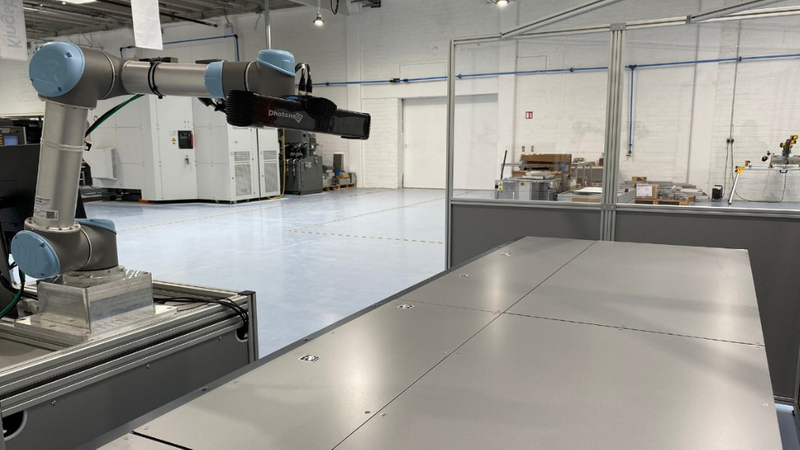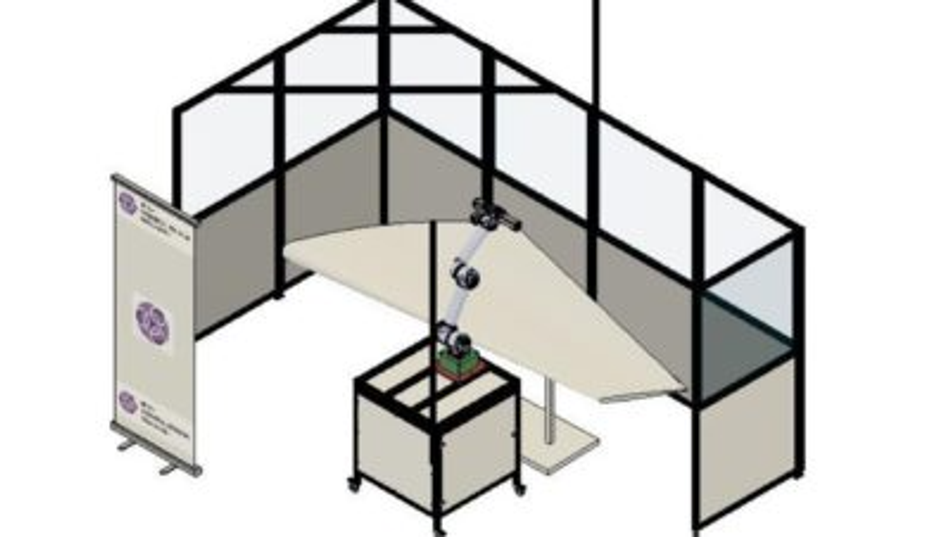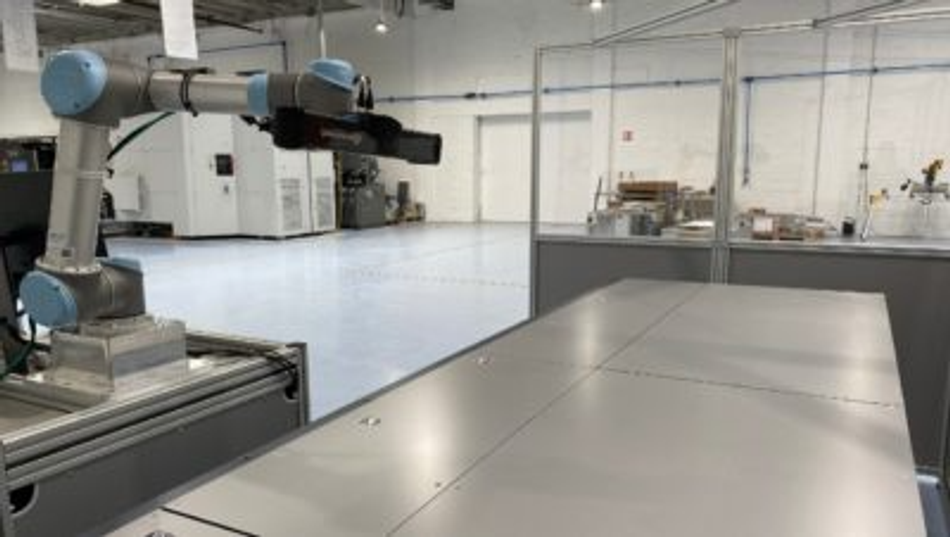End-to-end solution for 3D scanning and assembly of aircraft wings
The MAAS project team developed a unique, end-to-end solution for the assembly of airplane wing parts, which uses Photoneo 3D vision technology to handle challenges such as screw hole misalignment, panel to panel step height, and gaps out of specification.

Assembly of airplane wing parts using the PhoXi 3D Scanner
Partners:
Irish Manufacturing Research (IMR), Airbus, TEG, Robotnik, Northern Ireland Technology Centre, Queens University Belfast, Hexagon, Kuka Robots, MVTec, Multipix Imaging, Photoneo, EUREKA, Enterprise Ireland, the Centre for the Development of Industrial Technology
Challenge:
MAAS (Measurement Aided Assembly of Large-scale Structures) is a 2-year project funded by SMART EUREKA and supported by Enterprise Ireland (EI) and the Centre for the Development of Industrial Technology (CDTI).
The aim of MAAS was to improve the way airplane wings were made by developing an efficient automated solution – an end-to-end assembly process – for the manufacturing of aircraft sub-assemblies, with a focus on Airbus’s wing manufacture.

The project included the development of an efficient robotic 3D scanning solution that could scan and inspect full aircraft wings at the high speed with the high accuracy needed to generate digital 3D scans of the aircraft parts for best fit assembly operations. TEG and IMR worked closely to identify, develop, and deliver a novel wing and panel 3D scanning and measurement solution for parts assembly and the manufacture of wings.
“The grand challenge was to assemble airplane wings,” explains Ken Horan, Director of Robotics and Automation at IMR. “Within that, the problem in aircraft assembly was the expense of manufacturing due to variability in panels and wing fames resulting in screw hole misalignment or panel to panel step height and gaps out of specification. An automated system that could scan the frame, panels, locate, measure, and identify the best fit panel for a particular section of wing, to provide ease of assembly and screwing, was required.”
The final goal was to integrate the solution into a prototype robot-assisted assembly line to demonstrate a production cell integrating all the above described processes.
Solution:
The team developed an end-to-an automated solution for the assembly process of manufacturing airplane wings.
This included a robot scanning solution based on the PhoXi 3D Scanner from Photoneo, which was used for 3D scanning and inspection of aircraft wing parts using a mobile collaborative robot platform to enable robot-assisted assembly and quality assurance of the final sub-assembly by 3D scanning techniques.

Methodology:
- The system consisted of a mobile collaborative robot that scanned the wing panel and performed assembly operations
- 3D data analysis allowed fast matching of panels with appropriate assembly locations
- The system was able to carry out post assembly scanning for the measurement of gaps and step heights between panels
Discussion:
The MAAS project finished in late 2021, bringing about real business-to-business opportunities and valuable strategic partnerships between Irish SMEs, their European peers, and Airbus.
The implementation of the project outputs is expected to bring significant efficiencies to aircraft wing assembly, including reduced costs in the aircraft assembly operations and improvement of manufacturing processes.

The MAAS project was funded by SMART EUREKA and supported by Enterprise Ireland (EI) and the Centre for the Development of Industrial Technology (CDTI).
The multinational consortium comprised Airbus, TEG, IMR and Spanish robotics experts Robotnik. Northern Ireland Technology Centre, Queens University Belfast and other European SMEs such as Hexagon, Kuka Robots, MVTec, Multipix Imaging, and Photoneo were also involved with supply of hardware and expertise.
Irish Manufacturing Research (IMR) is one of Ireland’s leading technology centers with extensive robotics expertise, a founding member of SMART EUREKA, holding the vice chair seat on the board.
EUREKA is a European-founded public network for international cooperation in research, development, and innovation, operating in 48 countries. SMART is a EUREKA cluster programme, and offers a framework to bring together SMEs, large companies, and research performing organizations to collaborate on international research projects in advanced manufacturing.
TEG is a specialist Irish engineering firm and long-term strategic partner to IMR with metrology expertise in highly regulated environments such as biopharmaceutical facilities. They helped with the project with their EASA approved aviation design and production skills and the use of 3D scanning technologies. TEG benefited from MAAS too as the project provided an ideal opportunity to expand their business opportunities, highlight their capabilities in innovative technologies and their professionalism in project management by engaging in research with a global aerospace leader.
Airbus – a global pioneer in the aerospace industry, which provided first-class expertise in aircraft manufacturing and assembly.
For more reference, check out the IMR website or Horizon Europe.
Would you like to consult your projects with Photoneo? Contact them here.